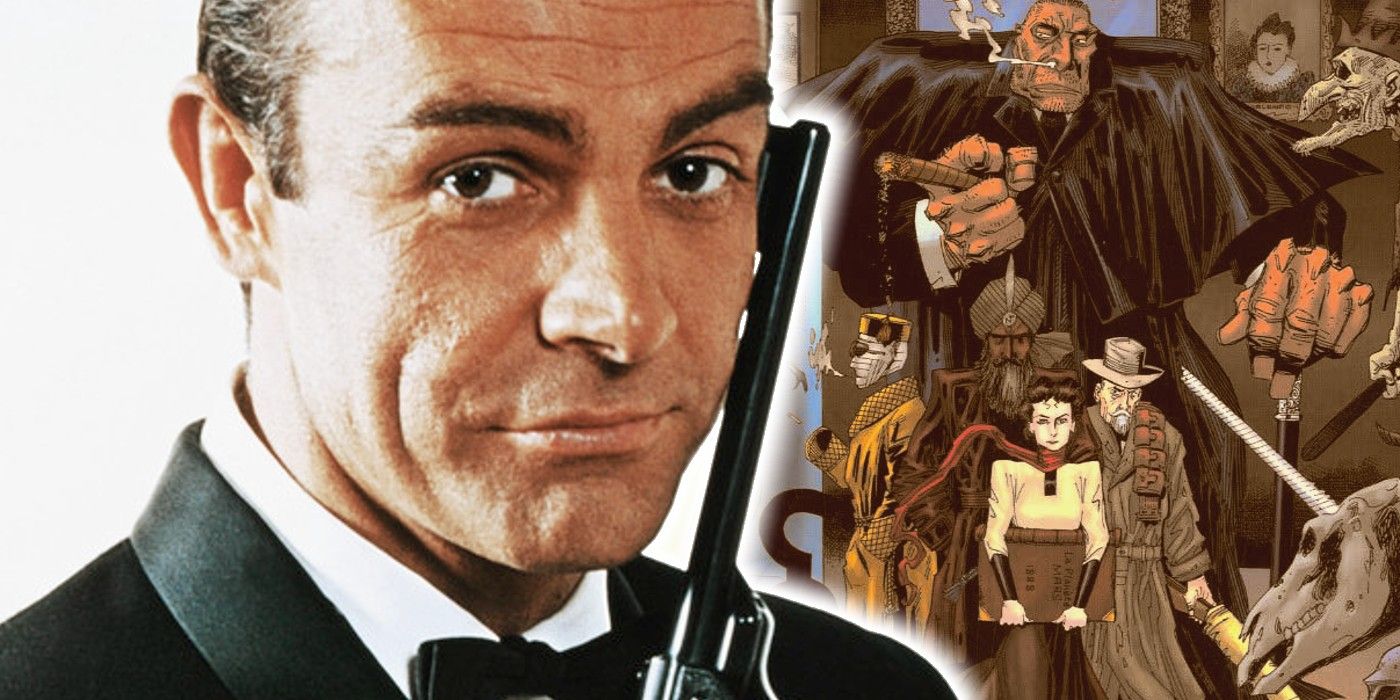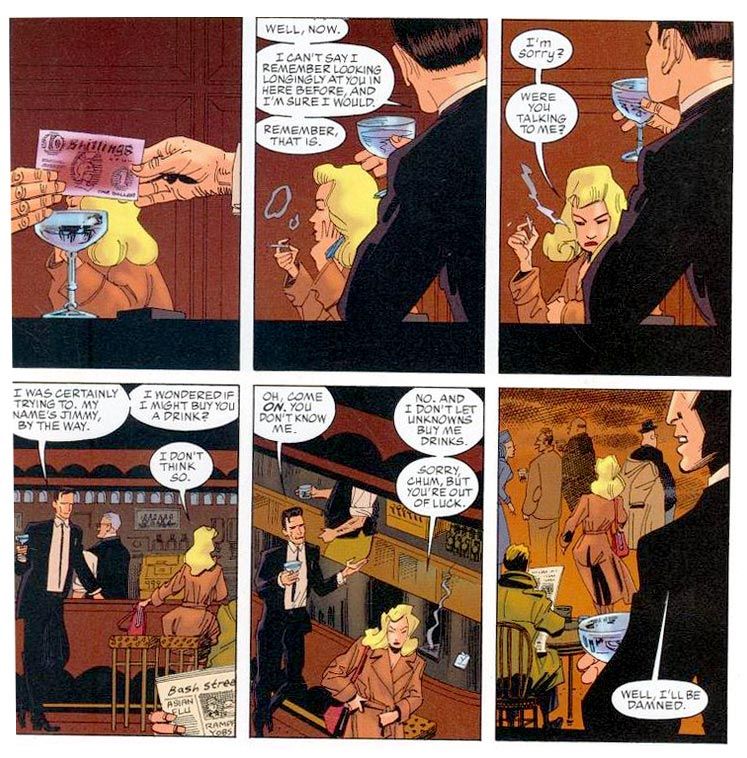Alan Moore’s The League of Extraordinary Gentlemen series features hundreds of literary heroes, villains, and every archetype in between, but two of the most important and opposing characters are Prospero and James Bond. It is no coincidence that Moore employs both of these characters in the roles that he does, as each represents the path and future of art.
The League of Extraordinary Gentlemen is a multi-volume graphic novel series written by Alan Moore —who once called Harry Potter the Antichrist— and with art by Kevin O'Neill. Throughout the various editions and volumes, it's revealed that Prospero from Shakespeare's The Tempest was the original founder of the League, and continues to survive as an immortal wizard in an alternate dimension known as the Blazing World. Prospero acts as an ally to Mina Murray, Allan Quartermain, and the members of the modern League. In opposition to them are often members of the Bond Family. It began with Campion Bond who worked as a messenger and confidant of James Moriarty in the first volume. His grandson, James —who is implied to be named after Sherlock Holmes’ greatest nemesis— goes on to be the ultimate enemy of the League in later volumes. He not only attempts to rape Mina Murray, but is revealed to be an American double-agent who kills John Knight and seduces his daughter, Emma, as just another sexual conquest. In his old age, Bond is later elevated to M and attempts to obliterate the Blazing World with a nuclear weapon.
The League of Extraordinary Gentlemen, which may soon be getting a Disney reboot, features a world inhabited by almost every literary and pop culture character imaginable, and that is significant. In a very real sense Moore is using his books to say that the very fate of fiction is at stake, with the two opposing forces represented by Prospero and Bond. While the Shakespearean wizard is depicted as an artist, Fleming’s secret agent is shown as the embodiment of misogyny and chauvinism run amok. Through this pairing Moore is pitting timeless literature against modern popcorn movie fictions, but their connection also goes deeper than that.
The two characters are both inspired by John Dee, the Elizabethan astrologer, alchemist, and scientist. Being one of his contemporaries, William Shakespeare directly based Prospero on Dee and his ability to mesh science and the occult. Ian Fleming also took a note from Dee, who was considered one of England’s first spies. In letters to Queen Elizabeth, Dee often signed them as “007,” with the two zeros meant to represent the queen’s eyes and seven being an important alchemical number. This means that the League's ultimate good and ultimate evil are different interpretations of the same person, with the ultimate symbol of art and creation in Prospero, and the ultimate symbol of jingoistic self-obsession in Bond.
This sort of dichotomy is very much in line with Moore and his well stated beliefs about fiction and their power in the world. The writer often attributes a mystical sense to the world of fiction and storytelling, and the book's Blazing World is representative of that world of fiction. It is even ruled over by a bearded polymath recluse, —who bears at least a passing resemblance to Alan Moore himself.
In an excerpt from Jess Nevins' Impossible Territories: The Unofficial Companion To The League Of Extraordinary Gentlemen, The Black Dossier, Moore says:
“I was using Prospero as a spokesperson for my ideas concerning fiction and how important that world is, how dependent we are upon it, how it can hardly be regarded as fictional at all when it has such far-reaching effects on the nonfictional, physical world. So that was mainly why we put Prospero in such a strong role.”
The League of Extraordinary Gentlemen is ultimately a treatise on the path and future of pop fiction, and it does so by using two offshoots of the same inspiration to embody the battle between “good” and “bad” art. Ultimately the League and Prospero triumph, and Alan Moore uses that to say that the world of fiction cannot be destroyed by even the worst of characters, not even James Bond.


